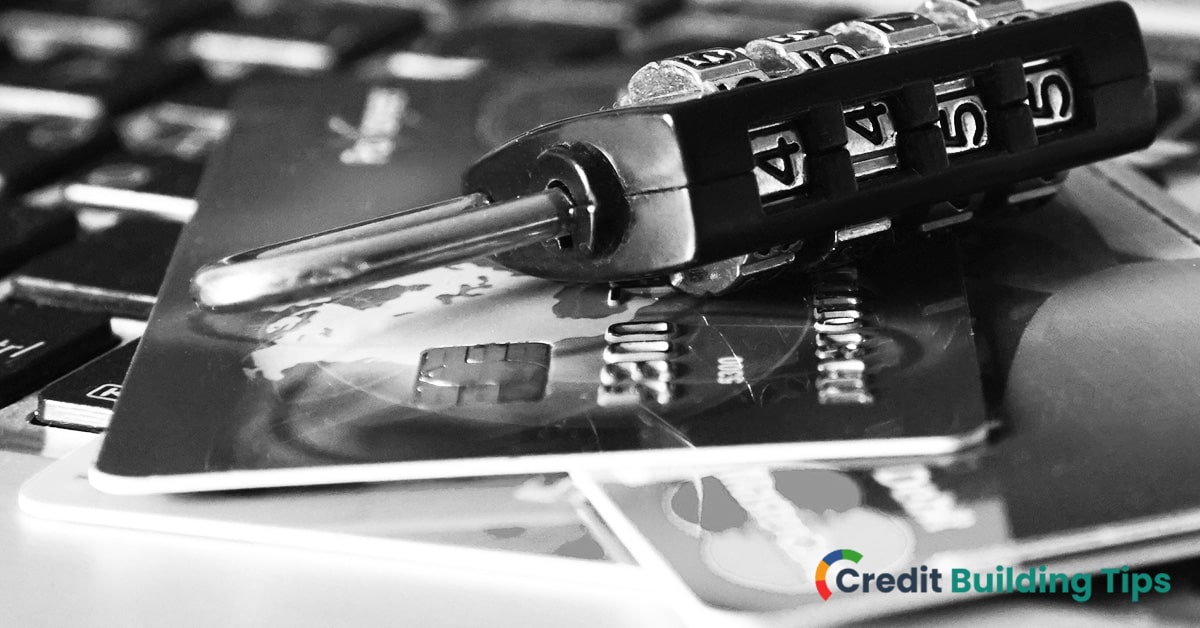According to the 2022 Identity Fraud Study conducted by Javelin Strategy & Reserve, 15 million consumers in the U.S. were victims of identity theft.
Identity theft isn't just scary and potentially expensive, but it can also wreak havoc on your credit for years to come if you aren't careful.
 Repairing your credit after identity theft can be a time-consuming process, but it's worth it to ensure that you don't suffer the consequences of bad credit down the road. You'll need to communicate with any creditors and companies where fraud occurred, dispute incorrect information on your credit reports, freeze your credit, and more to make sure that your credit isn't damaged by the experience.
Repairing your credit after identity theft can be a time-consuming process, but it's worth it to ensure that you don't suffer the consequences of bad credit down the road. You'll need to communicate with any creditors and companies where fraud occurred, dispute incorrect information on your credit reports, freeze your credit, and more to make sure that your credit isn't damaged by the experience.As with most things, prevention is the best cure to identity theft when it comes to your finances and your credit. However, the next best thing is to regularly monitor your credit reports, credit card statements, and bank statements so you can catch strange or unusual activity right away.
When someone uses your personal information without your permission, it's known as identity theft.

An individual can use your personal information to commit identity theft in a number of different ways, including:
Obviously, any of these occurrences is a huge problem in their own right. When you add in the fact that it can have an impact on your credit reports and credit scores, it only adds insult to injury.
Before we get into how to repair your credit after someone has stolen your identity, there are a few steps you're going to want to take to ensure that the fraudster isn't able to do any further damage.
There are essentially three different categories of actions you will want to take when someone has stolen your identity. These are:
This doesn't necessarily mean that you will want to go through these three stages in order, though. When you realize that your identity is stolen, you will essentially need to perform a number of important actions as quickly as possible to ensure that no further damage is done and that your personal and financial information is protected.
Here is a breakdown of the steps you'll want to take after you realize that your identity has been used for fraudulent purposes:
In the next section, we will take a closer look at the steps that involve repairing your credit after identity theft and fraud.
Now that you have seen a full list of the steps you will want to take after you realize that your identity was stolen let's take a closer look at the actions you'll need to take in order to repair your credit.
Different credit scoring models vary slightly in how they weigh factors, but in general, they place a similar amount of importance on each type of information. The primary factors credit scores take into account(presented in order of importance) are:
If hard inquiries are impacting your credit score, this guide looks at how to remove hard inquiries from your credit report.
If an identity thief steals your credit card information or opens fraudulent loans or cards, missed payments might be accruing. This could be happening on cards you opened yourself or accounts you don't even know about.

The good news is that your liability is limited for paying back fraudulent purchases so long as you catch it quickly and report it right away, thanks to Federal law. The bad news is that your credit reports will show missed payments that have a negative impact on your score and how you appear to potential lenders as a borrower.
Even if you file these disputes immediately after the fraud occurs, it can still take some time for the changes to reflect on your credit report and in your scores.
If an identity thief racks up debt in your name, it will have a negative impact on your credit utilization rate. Experts typically recommend that you keep your credit utilization rate at 30% or under. Lower is always better.
Once the problem has been remedied, your credit utilization rate will return to its normal level.
Though identity thieves likely won't have a direct impact on the length of your credit history, they can open new cards and get new loans that will wreak havoc on your credit score.
You will need to report the fraudulent activity to any lenders or creditors that allowed the thief to borrow money in your name and close the accounts. It can take time for the fraudulent accounts to be removed.
Identity theft shouldn't have an impact on your credit mix, as it is unlikely that a fraudster will close your legitimate accounts. This is one of the few factors that you don't have to worry about, but, unfortunately, it is also one of the least impactful factors on your scores.
If an identity thief has taken out a loan or opened a credit card in your name, it means that hard inquiries were made into your credit report.
Hard inquiries will remain on your credit reports even once you have closed fraudulent accounts and removed them from your credit report. You will need to dispute hard inquiries with the credit bureaus to ensure they don't impact your credit or your ability to borrow money in the future.
You will want to take action quickly when you realize that your identity might have been stolen.
Here are the steps you'll need to take:
On a mission to fix your credit? Take a look at our guides to removing a 30-day late payment, deleting a collection in exchange for payment, and removing derogatory marks on your credit report.
If you suspect identity theft, take a look at both your credit card and bank statements.
On credit card statements, look for any unfamiliar charges. You don't want to ignore charges just because the amount is small-- many scammers will start with small charges to see if it works before making more expensive purchases.
Even if you don't suspect fraudulent activity, it's important to review your credit card statements regularly.
On your bank statements, keep an eye out for strange activity and contact your bank if there are any unusual charges you don't recognize.
AnnualCreditReport.com is the site authorized by Federal law where you can request a free credit report from all three of the major credit bureaus.
Did your credit score drop unexpectedly? Take a look at this post about why your credit score might have dropped by 100 points or more.
Now that you have your credit report in hand, here is what you will want to look for:
It's best to follow up on any strange activity or marks on your credit report, even if it doesn't seem like a big deal or isn't currently impacting your credit score. If someone has your personal information, there's a good chance they will continue to do further damage.
You'll also want to check public records for civil court judgments or liens in your name. An identity thief that stole your ID could be masquerading as you in a way that impacts your public record. Since civil court judgments and liens no longer appear on your credit report, you'll want to contact the recorder's office in your county to look at your public records.
There are a number of steps you'll need to take if there has been fraudulent activity in your name. Some of these were briefly touched upon in the section "What to Do If You've Been a Victim of Identity Theft."
First, you'll want to call any companies where the fraud has occurred. To stop further damage, ask credit card companies and lenders to close or freeze any and all fraudulent accounts.
You'll also want to ask for a letter confirming that:
Beyond placing a fraud alert with all three credit bureaus, you'll also want to dispute any incorrect info that can be found on your credit report. All three credit bureaus-- TransUnion, Equifax, and Experian-- have online pages where you can begin the dispute process.
You'll also want to tell them to stop reporting the debt to credit bureaus and ask them for more details about the debt.
Now that you've been through the process of dealing with identity theft, you're likely motivated to avoid this experience in the future. Once you have worked everything out with the credit card companies, lenders, credit bureaus, debt collectors, and any other involved parties, you'll want to make sure that you take any and all necessary steps to ensure your identity and credit are protected in the future.
For more info about how to protect yourself from ID theft, scroll down to the section entitled "How Can I Protect Myself From Identity Theft?"
There are a number of things you will want to always keep an eye out for when it comes to identity theft and fraud.
Some of the signs of identity theft can include:
Before we sign off, let's touch upon some other frequently asked questions about identity theft and credit.
There are a number of different ways that identity thieves can steal personal information from individuals.
These include:
Do you need to repair your credit report so you are better able to qualify for a mortgage or another loan? Make sure you check out our articles about removing collections from your credit report, removing hard inquiries from your credit report, and removing evictions from your credit report.
The thought of someone coming into possession of your personal information is truly terrifying. Luckily, there are a number of things you can do to prevent identity theft from occurring.
Here are some habits you can practice in order to avoid your private information ending up in the wrong hands:
Having your identity stolen can be an overwhelming and terrifying experience. With your personal or financial information, thieves have the ability to rack up debt, take out loans, or even masquerade as you in police interactions.
Are you on a mission to rebuild your credit and make sure that you always have the ability to borrow money and take out loans with the best terms? If so, make sure you check out our credit building blog.